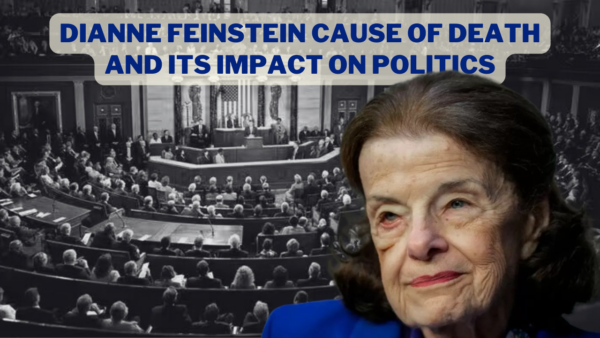The passing of Dianne Feinstein on September 29, 2023, marked the end of an era in American politics. At the age of 90, she was the longest-serving woman in Senate history. Feinstein’s departure was a somber moment, as it followed months of declining health, with her most recent struggle against shingles leading to encephalitis, a rare condition causing brain inflammation.
While the Dianne Feinstein Cause of Death was listed as natural causes, it’s hard to ignore the speculations that have arisen regarding cognitive decline. In her final years, the once-vibrant senator became increasingly forgetful, sometimes struggling to follow conversations. She even stumbled publicly, misidentifying colleagues and forgetting the names of bills she was voting on.
Questions about her decision to stay in office despite her declining health have also emerged. Some argue she should have retired earlier, while Feinstein maintained her commitment to serving the people of California until her term’s end in 2025.

Image Source: Getty Image
The Enigma of Feinstein’s Decline “Dianne Feinstein Cause of Death”:
Feinstein’s passing has stirred a debate on the intersection of age and cognitive decline in politics. Should there be age limits for elected officials, or is it up to the voters to decide an individual’s mental fitness for the job?
The exact cause of Feinstein’s cognitive issues remains elusive; whether it was Alzheimer’s disease or another form of dementia is unclear. However, what is evident is that her health struggles impacted her ability to carry out her duties as a senator.
Legacy in Flux:
Feinstein’s political career was a tale of firsts and controversy. She blazed a trail for women in politics, becoming the first female mayor of San Francisco and ultimately the oldest woman to serve in the Senate.
Her stance on issues was similarly complex. She was a fierce advocate for gun control and environmental protection, earning her the admiration of many. But she also faced criticism for supporting the Iraq War and opposing same-sex marriage.
Nevertheless, Feinstein was widely respected for her unwavering work ethic and her commitment to her constituents.
What Lies Ahead?
Feinstein’s departure has left a significant void in California’s Senate delegation. The responsibility of appointing her replacement falls on Governor Gavin Newsom’s shoulders, but it’s poised to be a contentious decision.
Democrats hope to nominate a progressive candidate, while Republicans push for a moderate choice. The outcome of this appointment will also impact the Senate’s balance of power. With Democrats currently holding a slim 51-50 majority, a Republican replacement would tip the scales.
In Closing:
Dianne Feinstein was a remarkable public servant whose dedication spanned decades. Her passing is undoubtedly a loss for California and the nation as a whole.
However, her death also prompts us to reflect on the broader issue of aging and cognitive decline in politics. It’s a conversation that should take center stage as we seek ways to ensure our elected officials are mentally fit to serve.
The Human Side:
Beyond her political persona, Dianne Feinstein was a fascinating and complex individual. She broke barriers, made mistakes, and grappled with the challenges of aging and declining health.
Her legacy reminds us that, at the core, we are all human. We share vulnerabilities tied to aging and illness, underscoring the importance of cherishing the time we have with loved ones and acknowledging the contributions they make to our lives.

